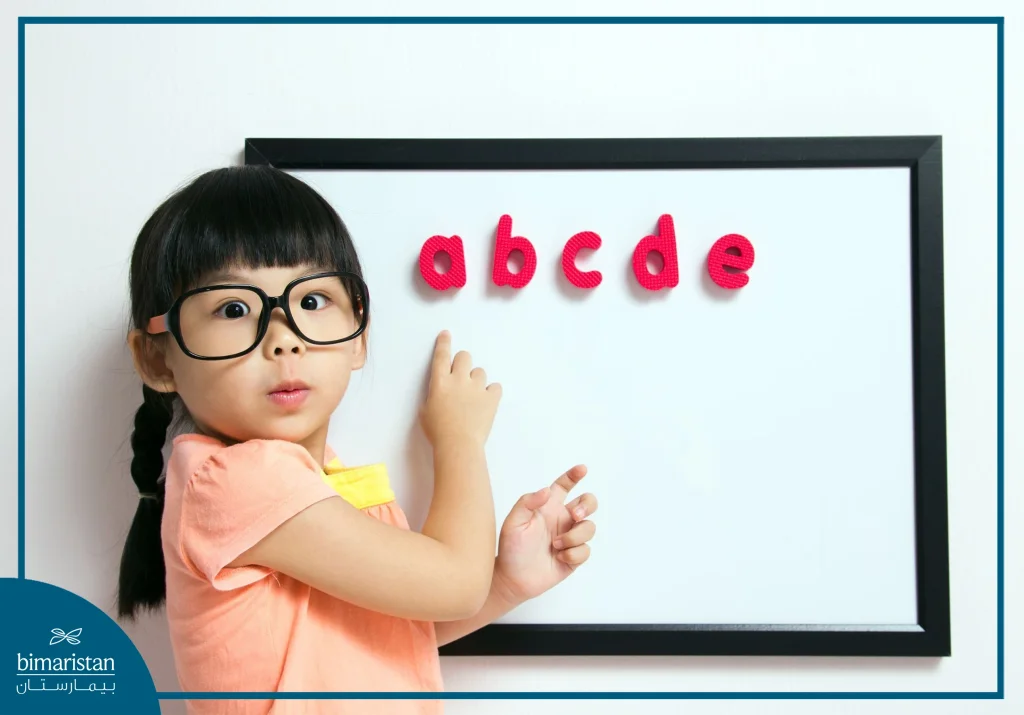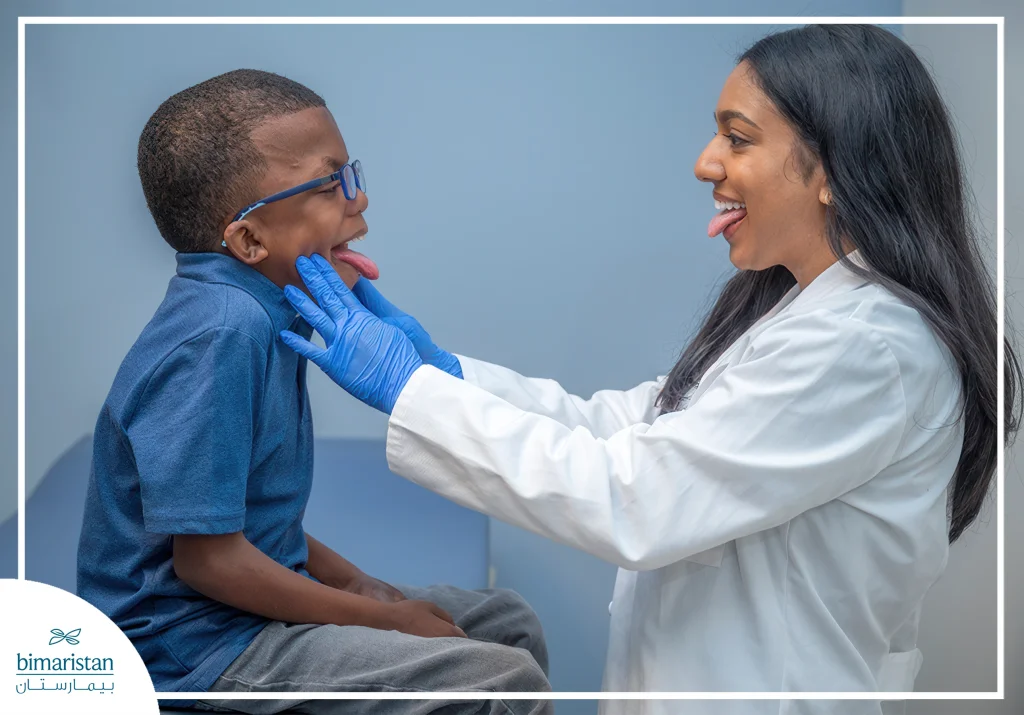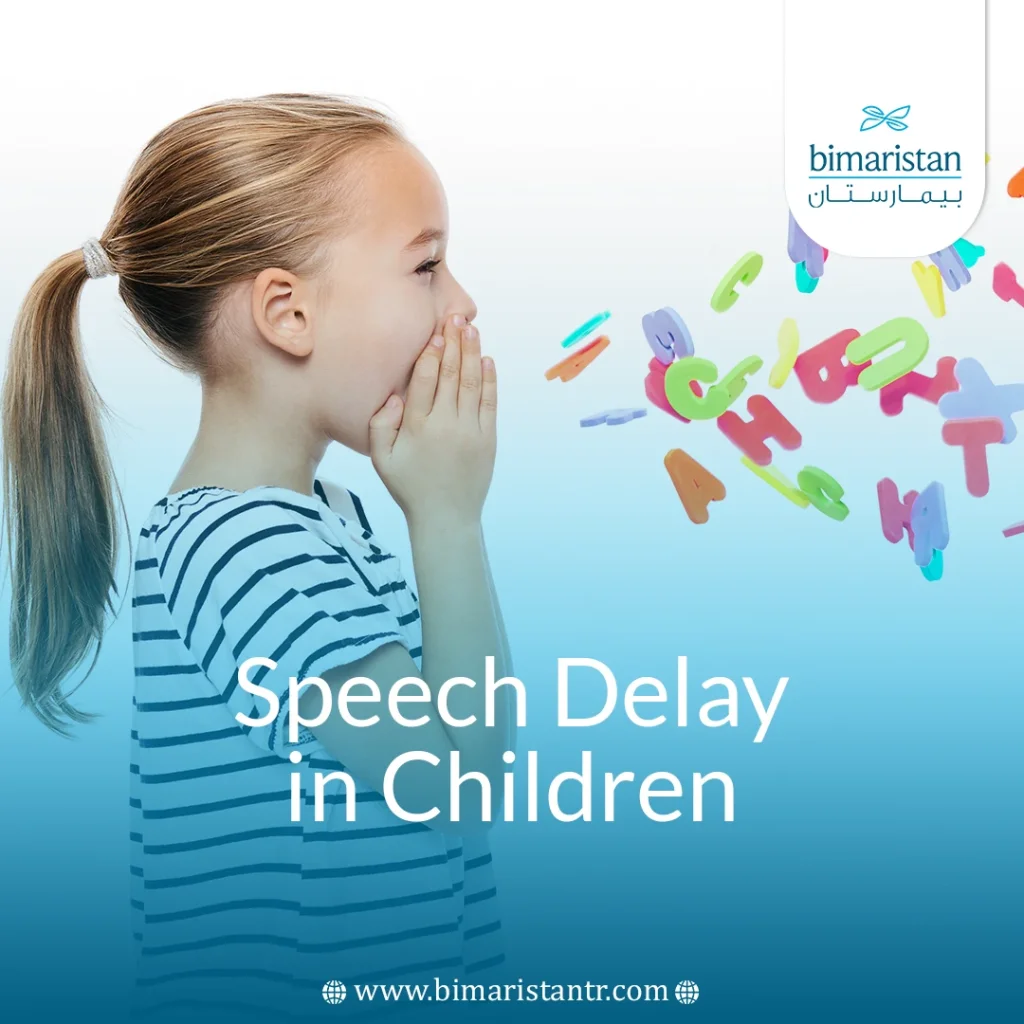The issue of speech delay in children raises concern among parents and doctors due to fears for the child’s communicative, social, and educational abilities, making early detection of speech delay in children crucial for improving their quality of life and future development.
The causes of speech delay in children vary between genetic, environmental, and psychological factors, requiring parents to accurately understand the condition, recognize risk factors and symptoms of speech delay in children, and embrace their role in promoting the child’s speech development.
What is speech delay in children?
First, the term speech must be clarified, as it is the physical act of making sounds and pronouncing words, and speech delay in children refers to the failure to develop the child’s communication skills in the usual or normal way. It can appear as difficulty in making sounds or forming words, and the child may understand some words but be unable to pronounce them clearly or link them together to form a sentence and conversation. Speech delay in children does not include understanding or non-verbal communication.
Speech delay in children should be distinguished from language delay: the child may have issues with understanding and communication, whether verbal or non-verbal, yet be able to make correct sounds and pronounce some words but be unable to understand others. A child may suffer from speech delay in children or language delay, and the two conditions may overlap.

What is the difference between normal speech delay and speech delay due to a disorder?
All children go through different stages of speech and language development, but this normal range can vary greatly due to exposure to different environmental and genetic factors, and speech delay in children may be due to various disorders such as neurological conditions, hearing loss, oral motor issues, developmental disorders, and autism.
Causes of speech delay in children
The causes of speech delay in children are varied, some of which are genetic, due to environmental factors, or as a result of other disorders, including the following:
- Hearing impairment: A child who doesn’t hear well or hears distortedly will have difficulty forming words.
- Autism spectrum disorder: Significantly affects speech, language, and communication, although not all people with autism have language delays.
- Oral disorders: Some children have issues with oral motor skills, caused by issues in the areas of the brain responsible for speech, resulting in difficulty coordinating the movement of the lips, tongue, and jaw to produce sounds.
- Neurological disorders: Some neurological conditions affect speech, such as cerebral palsy, muscular dystrophy, and traumatic brain injury.
Environmental factors and their impact on speech delay in children
Environmental factors play an important role in speech delay in children, as the family and social environment can affect the speed of their learning, and the lack of stimulation and language interaction may lead to a noticeable delay in speech and communication development; here are a number of environmental factors and their impact on speech delay in children:
- Home environment: Influences speech development by providing an environment for learning through the availability of books and learning activities.
- Parental involvement: By being actively involved in communicating with the children.
- Health care: Early intervention for speech-related issues.
- Proper nutrition: Which supports overall brain development.
Genetic factors and their impact on language development
Genetic factors play a large role in the difference in speech development in children, as research has proven that children who belong to families with a history of speech or language issues are more likely than others to develop these disorders, and understanding these genetic factors helps in the early detection of speech delays in children and the development of a treatment plan with the specialized doctor, the following is a group of genetic factors associated with speech development:
- Family history of speech issues: Increased risk of delayed speech.
- Genetic disorders: Potential for speech difficulties.
- Specific language disorder: Pronunciation is directly affected.
Symptoms that indicate a child’s speech delay
Children with speech delays may develop issues with language development, having difficulty using language to express what they need, with the following symptoms:
- Difficulty putting words together to form a sentence, or their sentences are simple and short, and the words are not arranged correctly
- Having a smaller vocabulary than their peers of the same age
- Incorrect use of tenses (past, present, and future)
- Deleting words from sentences while speaking
- Difficulty finding the right words when speaking
When should parents worry about their child’s speech delay?
Sometimes it can be difficult to notice signs of speech delay in children, so you can keep an eye out for signs that appear at certain ages that indicate this condition, including the following:
- Attention to others: A child should start paying attention to other people’s faces between 1 and 4 months of age.
- Monologue: It should start between 4 and 6 months, and at this age they start making sounds that contain vowels.
- Recognize his name: Your baby should start paying attention to his name between 6 and 9 months.
- The first word: Most babies say their first word around the age of 12 months.
- Communication with gestures: By their first birthday, they are able to use gestures such as waving goodbye.
- Use voice as the primary means of communication: By 18 months of age, he should be using more verbal communication than gestures, as well as being able to imitate sounds.
- Produce words and phrases spontaneously: A child should be able to say words and phrases on their own and understand and follow verbal instructions by around two years old.
How to diagnose speech delay in children
10-20% of children suffer from speech delays by the age of two, males are three times more likely than females, and often do not have any speech disorder and catch up with their peers by the age of three. After a thorough medical evaluation, the child’s doctor will refer the child to a speech-language pathologist, this doctor will assess the child’s speech and language skills, by evaluating what the child understands and can say, as well as the development of sounds, speech intelligibility and the child’s oral motor status (how the mouth, tongue and throat roof coordinate, as well as eating and swallowing).
Depending on the results of the tests, your speech-language pathologist may recommend other tests with other specialists, such as
- Audiologist
- Otolaryngologist
- Neurologist
- Psychologist

Effective speech therapy for delayed speech
The type of treatment for speech delay in children depends on the cause and type of the issue that led to this condition, as the speech therapist will help the child learn how to pronounce all sounds and combine them to form words, help the child understand the meaning of words and different types of sentences, teach the child to understand social signals and communicate in different situations, in addition to teaching the child to use special programs on a computer, tablet or smartphone, some of these programs include speech lessons, others allow the child to communicate through symbols, and the specialist will recommend a hearing aid when needed.
Treatment for speech delay in children can take place in children rehabilitation centers, where a speech therapist helps the child develop functional language communication skills through several sessions in which the child is treated using advanced modern methods and techniques.
Behavioral and language therapy for children with speech delays
Language therapy for speech delay in children focuses on developing expressive and receptive skills through regular sessions supervised by a speech-language pathologist, while behavioral therapy for speech delay in children aims to modify behaviors associated with communication difficulties, such as social withdrawal, tantrums or frustration resulting from the inability to express. Integrating behavioral therapy and language therapy is an effective method of treating speech delay in children, as scientific research has shown that integration between these two types of therapy contributes significantly to improving intervention outcomes, especially in children with additional developmental disorders such as autism spectrum disorder (ASD).
Early intervention for speech delay
Early intervention in the treatment of speech delay in children is the key to eliminating this condition and increasing the child’s chance of overcoming language issues, especially when he receives language therapy by a speech and language specialist, as this treatment helps to improve the child’s abilities in speech, expression and understanding, which enhances his self-confidence and his ability to interact socially, as parents must perform an early assessment of any child showing symptoms of speech delay in children, to determine whether he needs specialized intervention.

The role of the family in promoting speech development in children
Daily interaction between the child and the family is key to building early language skills, and positive praise for the child’s attempts at expression is an important factor in building confidence and encouraging repeated attempts to learn.
When there is a speech delay, cooperation between the family and speech specialists is crucial to the success of the treatment plan. Providing a stimulating and supportive language environment at home directly reflects the child’s expressive and receptive abilities, making the role of the family indispensable in this treatment.
Tips for parents to support children’s speech development at home
Here are some tips to help parents support speech development and treat the disorder:
- Talking directly to the child, even if it’s just to describe what the parents are doing
- Using gestures and pointing to objects while pronouncing speech
- Reading to a child, talking about pictures while reading
- Give your child your full attention while talking to them
- Singing simple, easy-to-repeat songs
- Repeat words correctly without directly criticizing mistakes
In conclusion, speech delay in children is a common but treatable issue that can be addressed with early intervention. Accurate diagnosis and appropriate treatment, along with the role of the family, play a crucial role in supporting a child’s speech development.
Sources:
